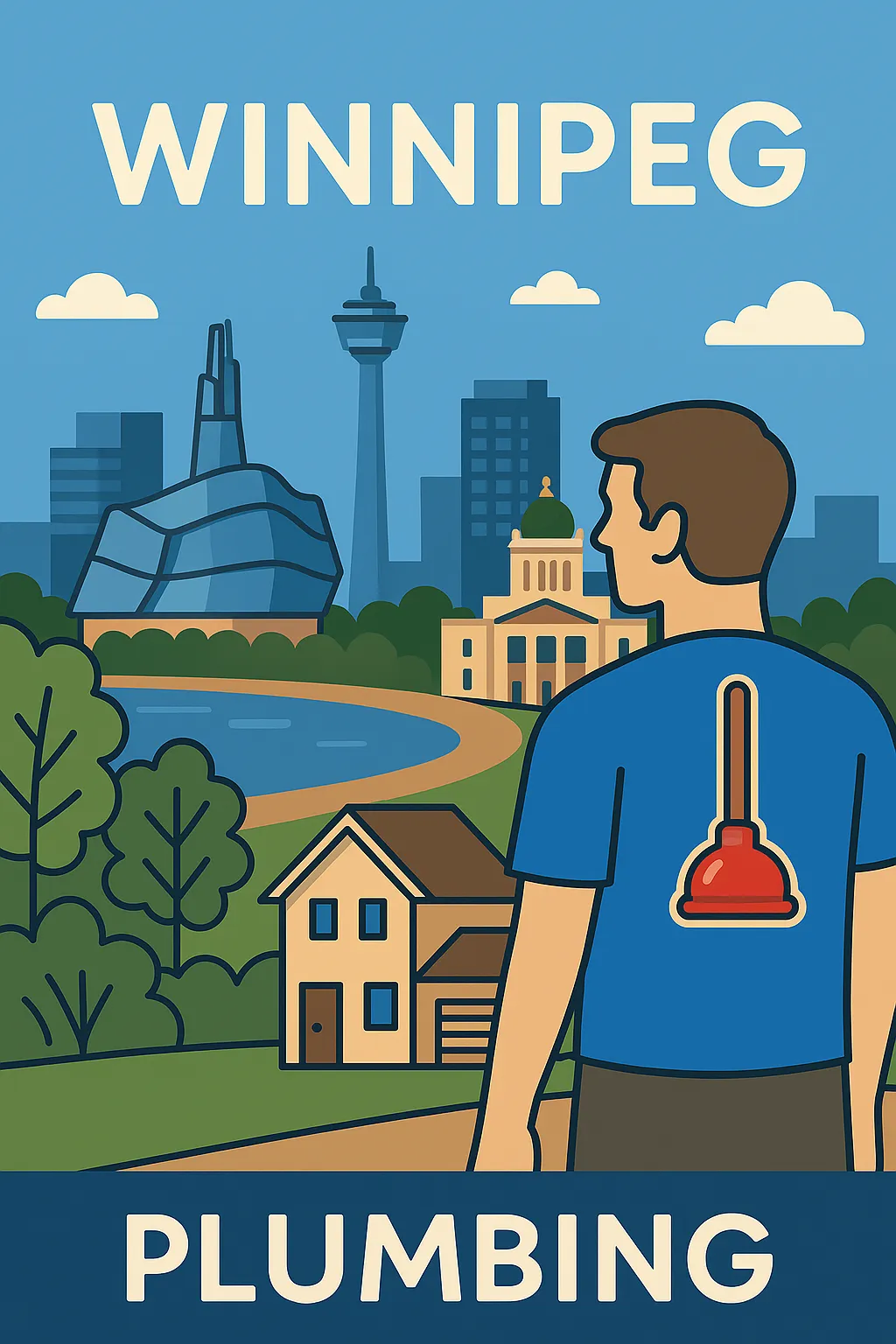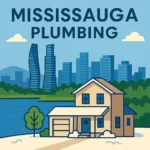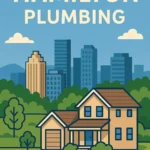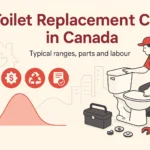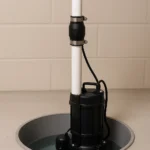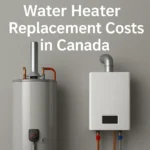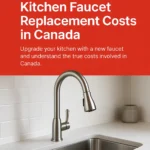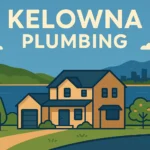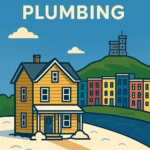Introduction
Winnipeg is Manitoba’s largest city, with over 750,000 residents (metro ~830,000). Known for its cold winters, aging infrastructure, and moderately hard water, plumbing concerns in Winnipeg range from scale buildup to frozen pipes. Whether you’re living in older homes in Wolseley, high-density neighbourhoods near the Exchange District, or newer suburbs like St. Vital and Charleswood, staying ahead of plumbing maintenance can save major costs and headaches.
Water Source, Quality & Hardness
Water Source: Winnipeg draws its water from Shoal Lake, delivered via the Greater Winnipeg Water District Aqueduct and stored at the Deacon Reservoir. Wikipedia
Water Quality: The City publishes annual distribution system water test results. Citizens receive data on metals, pH, total dissolved solids, chlorine, etc. City of Winnipeg
Hardness: The average hardness is ~4.9 gpg (~80.8 ppm CaCO₃). Aquatell Canada
- Hard enough to cause limescale buildup in kettles, fixtures, and on shower heads.
- Some appliance inefficiencies or staining over time.
- Many homeowners may notice effect, but it’s less aggressive than in extremely hard water areas.
Housing Stock & Plumbing Systems
- Heritage / older inner city (e.g., Wolseley, River Heights, Osborne Village): older pipes (galvanized steel, copper) and older sewer / drain systems.
- Mid-20th century homes in St. James, Elmwood, Transcona: built with copper plumbing, may have clay sewer laterals; some risk of root intrusion or pipe wear.
- New suburbs / outskirts (e.g., Charleswood, South Winnipeg, south suburbs): use modern materials like PEX or updated copper, but still exposed plumbing to cold, risk of freezing.
- Rural sections / near perimeter: private wells for some, septic systems in rural outside city service areas.
Common Plumbing Issues in Winnipeg
- Lime & scale due to moderate hardness: affecting fixtures, dishwashers, kettles.
- Frozen or burst pipes during harsh winters, especially for uninsulated outside lines, older homes.
- Old sewer laterals (clay, older materials) subject to root intrusion, blockages.
- Hot water tank longevity: sediment, inefficiencies.
- Basement or crawl space water intrusion during snowmelt or after spring thaws.
Seasonal Considerations
- Winter: Freezing temperatures often dip below -30 °C; exposed plumbing, basement lines are vulnerable.
- Spring: Snow and ice melts lead to runoff, ground thaw; basement flooding risks.
- Summer: Thunderstorms can overload drainage; backup risk in sewer/overland flow.
- Fall: Prep needed — inspect insulation, clear gutters, seal foundation weak points.
Plumbing Costs in Winnipeg
Pricing in Winnipeg tends to be similar to other mid-sized Canadian cities. While exact minimum service call fees vary, here are typical ranges based on local contractor listings and regional pricing norms.
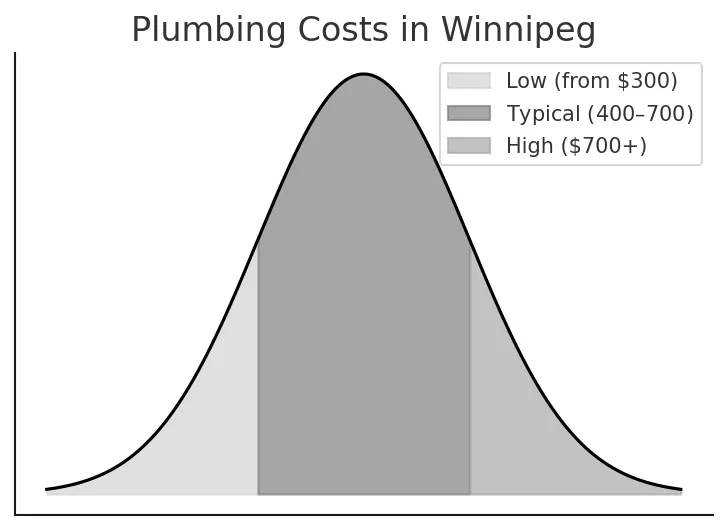
| Service | Low | Typical | High |
|---|---|---|---|
| Drain unclogging | $300 | $400 | $700+ |
| Faucet replacement | $300 | $450 | $850+ |
| Hot water tank replacement | $1,400 | $2,000 | $3,500+ |
| Emergency / after-hours service | $450 | $700 | $1,200+ |
⚠️ Disclaimer: Estimates. Actual costs vary with plumber, materials, job complexity, and whether a permit or after-hours labour is required.
Permits & Regulations
- Plumbing work in Winnipeg requires permits under city and provincial building/plumbing codes.
- Permit fees and building fee schedules include plumbing items. City of Winnipeg
- A minimum non-compliance fee applies if work is done without required permits. City of Winnipeg
- For significant modifications (new fixtures, drainage changes, adding or relocating plumbing), a permit is almost always required. For small repairs or maintenance (like replacing a faucet or repairing a leak) likely not.
Case Study: Preventing Freeze-Burst in Charleswood
A homeowner in Charleswood had an exposed external hose line that repeatedly froze and burst each winter. In 2022 they insulated the line, rerouted or moved outdoor shut-offs to interior walls where possible, and added pipe insulation to crawlspace plumbing. The work cost about $1,800. During the following -35 °C winter, there was no burst or repair needed, saving thousands in potential damage.
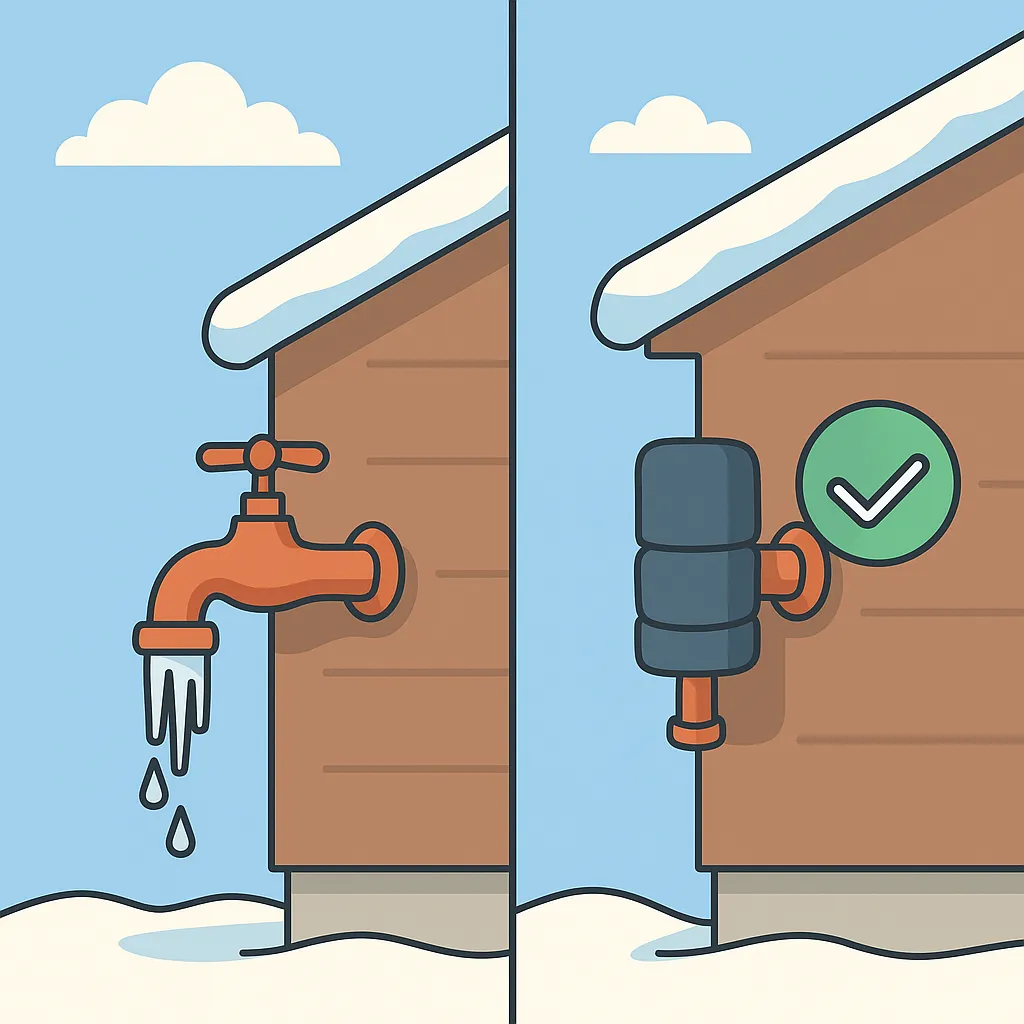
FAQs
Is Winnipeg’s water very hard?
Moderately: ~4.9 gpg — noticeable scale but less severe than very hard water cities.
Should I be worried about frozen pipes?
Yes, especially in older homes or for any outdoor exposed plumbing. Insulation, covering outdoor spigots, sealing cracks help a lot.
Do I need a permit for plumbing work?
For new installations, moving fixtures, major changes, yes. Minor fixes often don’t require a permit. Always check with City of Winnipeg.
What are big plumbing risks in Winnipeg?
Burst pipes in winter, scale buildup, sewer blockages in older pipe materials.
Who do I call for emergency plumbing?
Licensed plumbing contractors; for inspections or permit questions contact Winnipeg’s Planning, Property & Development department (building/services).
Tips for Winnipeg Homeowners
- Insulate all exposed plumbing before winter.
- Use water softeners or descaling to reduce scale buildup.
- Flush hot water tanks yearly.
- Replace older clay sewer laterals if blockages are frequent.
- Maintain drainage around foundation and install backwater valves if needed.
Conclusion
Winnipeg homeowners face plumbing issues that combine moderate water hardness, cold winters, and aging infrastructure. With proactive maintenance, insulation, accurate workmanship, and timely upgrades, many common issues can be avoided—keeping homes safe, dry, and efficient.
👉 Book a licensed plumber in Winnipeg today at unclogit.com or call 604-496-1661.

